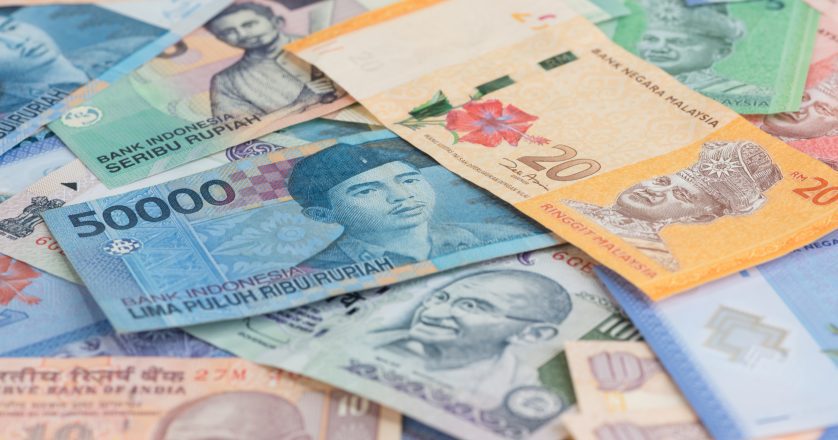Bitcoin Is Now Better Money Than Many Emerging Market Currencies
Bitcoin is building a strong use-case as a medium of exchange for global transfers.

Key Takeaways
- Bitcoin’s volatility and price action are comparable to and even better than many emerging markets.
- Bitcoin ranks 16th and 30th, respectively, in the list of the M1 and M2 money supply of countries.
- It has built a strong use-case for use as a medium of exchange for remittance, businesses, and central banks.
Share this article
Data pulled by Japanese multinational financial services firm Nomura finds that Bitcoin is outperforming many emerging currencies.
A dive into these markets’ characteristics reveals that Bitcoin’s performance is better than in many of these countries.
Bitcoin: Not So Volatility Anymore
The one-year volatility of Bitcoin is low compared to emerging currencies. Emerging countries are those that resemble many developed countries but fall short on a few metrics. Many economists also use the term “emerging markets.”
Examples of emerging markets include China, Brazil, South Africa, India, and many others.
The Emerging Market Bond Index (EMBI), issued by financial institutions, tracks the performance for 25-40 countries considered emerging markets. The one-year volatility of EMBI is 31.8%, while it is 12.4% for Bitcoin.
Therefore, Bitcoin is performing better than the EMBI index in terms of market volatility.
Since 2020 has been an outlier for most assets, the retail markets’ volatility will likely drop again. However, under extreme environments, Bitcoin’s performance has been at par with U.S. real estate.
Moreover, countries like Venezuela, Turkey, Argentina, and others have seen a continuous devaluation of their currencies concerning the U.S. dollar.
On the other hand, Bitcoin has recorded 150% gains year-to-date.
Currency Liquidity and Market Capitalization
The M1 money supply of a country considers the total cash dispositions of the country in the form of cash, safety, and checking deposits. Hence, it can be an appropriate measure of the liquidity of the currency.
With a market capitalization of $330 billion, Bitcoin ranks 16th in the list of global currencies.
Since Bitcoin is also an investment, a more apt comparison metric could be the M2 money supply.
The M2 money supply of a country measures the total cash, checking deposits, and convertible near money in mutual funds, stocks, or bonds. With a market capitalization of $330 billion, Bitcoin ranks among the top 30.
Further, the liquidity of national currencies is concentrated in the region. But, Bitcoin is global.
Bitcoin already has a strong use-case for many emerging and developing countries—cheaper and faster transfer of value.
A remittance transfer can take days, if not longer, for countries with weak banking infrastructure and costs $40-$50. BTC can reduce this cost by five to ten times.
A research report from Fidelity Investment’s crypto wing also addressed the criticism of Bitcoin failing as a medium of exchange. The analyst Ria Bhutoria writes:
“Bitcoin may offer a superior option in remittances that have been burdened by slow speeds and high fees, especially to and from countries that face capital controls or struggle with high levels of inflation.”
According to a world bank estimate, the average cost of sending an international payment of $200 is nearly $13.6. Whereas for BTC, the average fee is below $10. Bitcoin’s fee is not dependent on the amount. The cost is the same for a $10 transaction or $1 million.
Bhutoria states that Bitcoin’s use case is cumbersome for micro-transactions like paying for a cup of coffee but funds utility in more important transactions like “global settlement between international businesses and eventually even central banks and governments.”
This commentary, along with its competitiveness in emerging markets, suggests that BTC is growing as a store of value and as a medium of exchange.
Share this article
